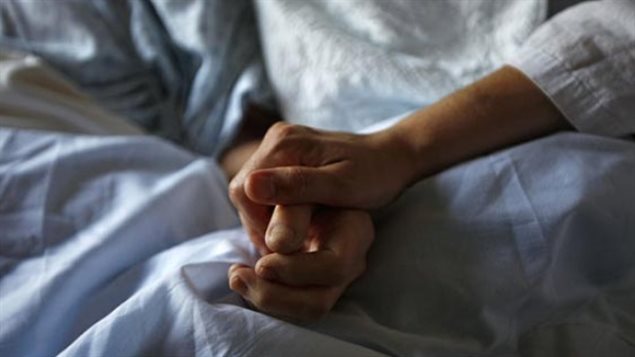Medical assistance in dying (MAID) as it applies to people living with mental illness, was the subject of a one-day colloquium at the University of Toronto’s Faculty of Law this past weekend. Professor Trudo Lemmens, Chair in Health Law and Policy, was one of the organizers.
ListenProfessor Lemmens says, “the number of patients who are euthanized for mental health reasons is increasing in Belgium and the Netherlands and so among many people that raises concerns about why is that increasing, and whether that puts already inherently vulnerable people at risk of premature death?”
“Debating these issues in a public forum is a very important goal of this meeting”
Professor Lemmens notes that 3,900 people committed suicide in Canada last year, but tens of thousands make the attempt each year. He says, however, that with the proper care, the majority of people suffering from mental health issues, do recover.
Indeed Canada is making the ongoing effort to talk about mental health, to bring it into the open. By loosening the stigma around mental health, it frees people to acknowledge the different forms they, or a family-member, may be suffering. And more importantly, the conversation acknowledges that getting better and healing is possible.
Medical assistance in dying, is the term replacing the more provocative descriptors, such as doctor assisted suicide, or doctor assisted death. These were the terms used as the debate over the issue made its way through Canadian society.
The province of Quebec enacted its own law. Bill-52, the Act Respecting End-of-Life Care, was passed in June of 2014.
Under Bill 52, adults who suffer from a serious and incurable illness, who are in an advanced state of irreversible decline in capability, who are experiencing constant and unbearable pain, physical or psychological suffering, and who are at the end of life may obtain end-of-life care, which includes a right to palliative care as well as medical aid in dying.
“The complexity of applying the already, I would say, difficult criteria for providing access to medical assistance in dying in the end of life context, so applying these criteria which are already complex in the context of mental illness is certainly a much more challenging issue,” Professor Lemmens says.
“I’m not sure that people are sufficiently informed actually of the dilemmas that mental health providers will face.” he says. “Debating these issues in a public forum is a very important goal of this meeting”
Bill-C14, the federal law passed in June 2016, is not available to minors, nor can it be used to relieve the suffering of a mental illness, a long term disability or any curable condition.
“If now, in the context of a therapeutic treatment relation, psychiatrists would be asked to offer medical assistance in dying as one of the options, there is concern this could affect quite a lot of patients who otherwise would be offered care, and who may in the long run recover.” says Professor Lemmens,
Since becoming legal, medically assisted deaths across Canada averaged four per day. between June 17 and December 16, 2016.







For reasons beyond our control, and for an undetermined period of time, our comment section is now closed. However, our social networks remain open to your contributions.